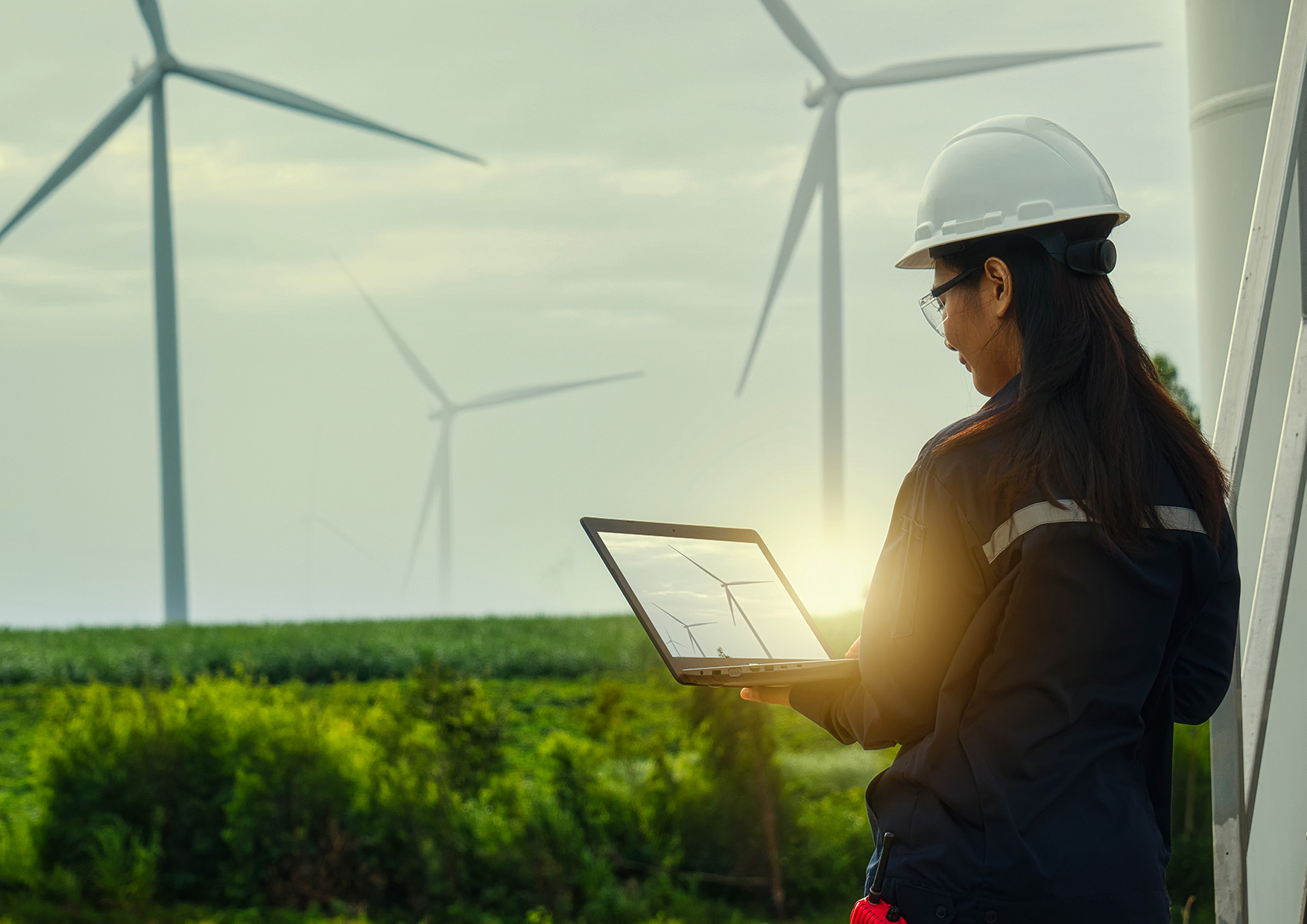The Government has provided some details regarding its recently announced Future Made in Australia package. The $22.7 billion package is designed to help make Australia an indispensable part of the global economy, by attracting investment in key industries and making Australia a renewable energy superpower. The package seeks to maximise the economic and industrial benefits of the move to net zero and securing Australia’s place in a changing global economic and strategic landscape.
Attracting and enabling investment in key industries
The Government will provide $68.0 million over four years from 2024–25 (and $3.1 million per year ongoing) to attract investment in key industries to support a Future Made in Australia. Funding includes:
- $54.7 million over two years from 2024–25 to administer, coordinate and promote the Government’s Future Made in Australia agenda, including the development of legislation that establishes a National Interest Framework and consultation with industry, investors and major stakeholders on the development of a ‘single front door’ that improves the attraction and facilitation of major investment proposals;
- $11.4 million over four years from 2024–25 (and $3.1 million per year ongoing from 2028–29) to establish and manage a domestic National Interest Account with Export Finance Australia, supporting domestic projects in the national interest, consistent with the Future Made in Australia National Interest Framework; and
- $1.9 million in 2024–25 to undertake an independent statutory review of the Northern Australia Infrastructure Facility Act 2016.
The Government also intends to enhance Indigenous Business Australia’s ability to leverage their capital to invest in First Nations communities and businesses.
Making Australia a renewable energy superpower
The Government will provide an estimated $19.7 billion over ten years from 2024–25 to accelerate investment in Future Made in Australia priority industries, including renewable hydrogen, green metals, low carbon liquid fuels, refining and processing of critical minerals and manufacturing of clean energy technologies including in solar and battery supply chains. Funding will catalyse clean energy supply chains and support Australia to become a renewable energy superpower. Funding includes:
- An estimated $7.1 billion over 11 years from 2023–24 (and an average of $1.5 billion per year from 2034–35 to 2040–41) to support refining and processing of critical minerals, including:
- A Critical Minerals Production Tax Incentive from 2027–28 to 2040–41 to support downstream refining and processing of Australia’s 31 critical minerals to improve supply chain resilience, at an estimated cost to the budget of $7.0 billion over 11 years from 2023–24 (and an average of $1.5 billion per year from 2034–35 to 2040–41). The Critical Minerals Production Tax Incentive will provide a production incentive valued at 10 per cent of relevant processing and refining costs for Australia’s 31 critical minerals. This incentive will be applicable for up to 10 years per project, for production between 2027–28 and 2039–40 by projects that reach final investment decisions by 2030; and
- $10.2 million in 2024–25 for pre-feasibility studies for critical mineral common-user processing facilities in partnership with state and territory governments to enhance Australia’s capacity to process critical minerals, sovereign capability and economic resilience.
- An estimated $8.0 billion over ten years from 2024–25 (and an average of $1.2 billion per year from 2034–35 to 2040–41) to support the production of renewable hydrogen, including:
- A Hydrogen Production Tax Incentive from 2027–28 to 2040–41 to producers of renewable hydrogen to support the growth of a competitive hydrogen industry and Australia’s decarbonisation, at an estimated cost to the budget of $6.7 billion over ten years from 2024–25 (and an average of $1.1 billion per year from 2034–35 to 2040–41). The Hydrogen Production Tax Incentive will provide a $2 incentive per kilogram of renewable hydrogen produced for up to ten years per project, between 2027–28 and 2039–40 for projects that reach final investment decisions by 2030;
- $1.3 billion over ten years from 2024–25 (and an average of $151.6 million per year from 2034–35 to 2038–39) for an additional round of the Hydrogen Headstart program to bridge the green premium for early-mover renewable hydrogen projects. The expanded Hydrogen Headstart program will support the early movers investing in the industry’s development in a way that complements the support provided through the tax system; and
- $17.1 million over four years from 2024–25 (and an additional $2.5 million in 2028–29) to deliver the 2024 National Hydrogen Strategy, including hydrogen infrastructure planning, social license and industry safety training and regulation.
- $1.5 billion over seven years from 2027–28 (and an average of $125.0 million per year from 2034–35 to 2036–37) to the Australian Renewable Energy Agency to supercharge ARENA’s core investments in renewable energy and related technologies, including for the development, demonstration, commercialisation, manufacture and deployment of renewable energy technologies that will help make Australia a renewable energy superpower.
- $1.7 billion over ten years from 2024–25 for the Future Made in Australia Innovation Fund, to be administered by the Australian Renewable Energy Agency, to support innovation, commercialisation, pilot and demonstration projects and early stage development in priority sectors, including renewable hydrogen, green metals, low carbon liquid fuels and clean energy technology manufacturing such as batteries.
- $1.4 billion over 11 years from 2023–24 (and $66.8 million per year from 2034–35 to 2036–37) to support manufacturing of clean energy technologies, including:
- $835.6 million over ten years from 2024–25 (and $66.8 million per year from 2034–35 to 2036–37) to establish the Solar Sunshot program administered by the Australian Renewable Energy Agency to promote the development of solar manufacturing capabilities, and improve the industry’s supply chain resilience through production incentives and other forms of support.
- $549.0 million over eight years from 2023–24 to support battery manufacturing, including:
- $523.2 million over seven years from 2024–25 to establish the Battery Breakthrough Initiative, administered by the Australian Renewable Energy Agency, to promote the development of battery manufacturing capabilities through production incentives targeted at the highest value opportunities in the supply chain;
- $20.3 million over five years from 2023–24 for the Powering Australia Industry Growth Centre and the Future Battery Industries Cooperative Research Centre to enhance industry and research collaboration, including workforce training for battery research, manufacturing, transport and recycling; and
- $5.6 million in 2024–25 to support delivery of the Australian Made Battery Manufacturing Precinct to drive battery manufacturing in Australia.
- $2.0 million over two years from 2024–25 for a techno-economic feasibility study to explore solar value chain opportunities that could be generated from developing a green polysilicon industry in Australia, including through export and cooperative international opportunities.
- $20.9 million over four years from 2024–25 (and $1.2 million per year ongoing) to undertake further consultation on incentives to support the production of, and demand for, low carbon liquid fuels, as well as the development of a low carbon liquid fuels certification scheme through the Guarantee of Origin Scheme.
- $18.1 million over six years from 2024–25 for foundational initiatives to expedite the emergence of Australia’s green metals industry, including through enhanced industry and research collaboration, exploration of opportunities to improve the use of Australian scrap metal and undertaking of further consultation on incentives to support the production of green iron, steel, alumina and aluminium.
- $11.4 million over four years from 2024–25 (and $1.1 million per year ongoing) to fast track the initial phase of the Guarantee of Origin Scheme for green hydrogen and bring forward work on green metals, including iron, steel and aluminium.
The Government will also make up to $1.2 billion in strategic investments in priority critical minerals projects including up to $655.0 million under the Critical Minerals Facility and up to $400.0 million through the Northern Australia Infrastructure Facility. This includes financing to support the Alpha HPA alumina project in Queensland and Arafura Rare Earth’s Nolans Rare Earth project in the Northern Territory.
The measure builds on the 2022–23 October Budget measure titled Enabling a Low Emissions Future and Supporting Green Markets, the 2023–24 Budget measures titled Hydrogen Headstart and Guarantee of Origin and the 2023–24 MYEFO measure titled Working with the Australian Critical Minerals Industry to Unlock Investment in Enabling Infrastructure.
Strengthening our digital, science and innovation capabilities
The Government will provide $1.7 billion funding over ten years from 2024–25 for investments in innovation, science and digital capabilities to support a Future Made in Australia. Funding includes:
- $566.1 million over ten years from 2024–25 (and an average of $111.8 million per year from 2034–35 to 2058–59) for Geoscience Australia to map Australia’s national groundwater systems and resource endowments to increase industry investment and identify potential discoveries of all current critical minerals and strategic materials. This extends the terminating Exploring for the Future program, reshaping it as the Resourcing Australia’s Prosperity program;
- $466.4 million for a financing package of equity and loans provided by Export Finance Australia on the National Interest Account to PsiQuantum Pty Ltd to support the construction and operation of quantum computing capabilities and associated investment in industry and research development in Brisbane, as part of a joint investment with the Queensland Government. Additional funding of $27.7 million over 11 years from 2023–24 will also be provided for the Department of Finance, the Department of Foreign Affairs and Trade, the Department of Industry, Science and Resources and the Department of the Treasury to manage and provide oversight of this investment;
- $448.7 million over 11 years from 2023–24 (and an average of $43.2 million per year ongoing from 2034–35) establish Australia’s partnership with the United States on the next generation of the Landsat satellite earth observation program; and
- $145.4 million over two years from 2024–25 to maintain the National Measurement Institute’s core scientific measurement and ICT capabilities and to support current site operations and future planning.
The proposal builds on the 2023–24 Budget measure Strengthening Australia’s Science, Technology, Engineering and Mathematics Capabilities.
Other measures
- Promoting sustainable finance markets: The Government will provide $17.3 million over four years from 2024–25 (and $3.1 million per year ongoing) to promote the development of sustainable finance markets in Australia. Funding includes:
- $10.0 million over four years from 2024–25 (and $1.9 million per year ongoing) for additional resourcing for the Australian Securities and Investments Commission (ASIC) to investigate and take enforcement action against market participants engaging in greenwashing and other sustainability-related financial misconduct;
- $5.3 million over four years from 2024–25 (and $1.2 million per year ongoing) for the Treasury, ASIC and the Australian Prudential Regulation Authority (APRA) to deliver the sustainable finance framework, including issuing green bonds, improving data and engaging in the development of international regulatory regimes related to sustainable finance.
- Strengthening approvals processes: The Government will provide $182.7 million over eight years from 2023–24 (and $4.5 million ongoing from 2031–32) to strengthen approval processes to support the delivery of the Government’s Future Made in Australia agenda, including Australia’s transition to a net zero economy. Funding includes:
- $96.6 million over four years from 2023–24 for the Department of Climate Change, Energy, the Environment and Water to strengthen environmental approvals for renewable energy, transmission, and critical minerals projects, deliver additional regional plans, and undertake targeted scientific studies to improve the environmental data used in decision-making;
- $20.7 million over seven years from 2024–25 (and $0.4 million per year ongoing from 2031–32) to improve community engagement and social licence outcomes through permanent establishment of the Australian Energy Infrastructure Commissioner, development of voluntary national developer standards with the support of the Clean Energy Regulator, and the development of a regulatory reform package to realise community benefits in regional communities affected by the energy transition;
- $19.9 million over four years from 2024–25 for the Department of Climate Change, Energy, the Environment and Water to develop, agree and maintain a national priority list of renewable energy related projects and process assessments for priority projects;
- $17.7 million over three years from 2024–25 to reduce the backlog and support administration of complex cultural heritage applications under the Aboriginal and Torres Strait Islander Heritage Protection Act 1984 and progress the reform of Australia’s cultural heritage laws;
- $15.7 million over four years from 2024–25 (and $4.1 million per year ongoing from 2028–29) for Treasury to strengthen and streamline Australia’s foreign investment framework, through more effective monitoring, enforcement of conditions and timely review of foreign investment applications. This includes refunding 75 per cent of fees for foreign investment applications that do not proceed because the applicant was unsuccessful in a competitive bid process.
- Harnessing the Energy Transition to Benefit Consumers: The Government will provide $47.7 million over four years from 2024–25 (and $0.7 per year ongoing) to maximise consumer and community benefits of the energy transition. Funding includes:
- $27.7 million over four years from 2024–25 (and $0.7 million per year ongoing) to implement priority consumer energy resources reforms that help consumers save on bills by boosting the supply of renewable electricity to the grid from rooftop solar, home batteries and other consumer energy resources;
- $16.6 million over four years from 2024–25 (including $1.7 million in capital funding in 2024–25) for the Australian Energy Regulator to help households get onto a better plan by sustaining regulatory activities, upgrading data and digital systems to reduce regulatory burden and cost, and delivering better outcomes for consumers through the Energy Made Easy website;
- $1.8 million over four years from 2024–25 to implement a range of consumer-focused energy retail reform measures to support consumers switching to a better deal with just ‘one click’, prevent contracts automatically rolling over to higher-cost deals, ensure people receive the concessions and rebates they are entitled to and reduce excess fees; and
- $1.6 million over two years from 2024–25 to undertake a statutory review of the Prohibited Energy Market Misconduct Act 2019 provisions in electricity retail, contract and wholesale markets.





